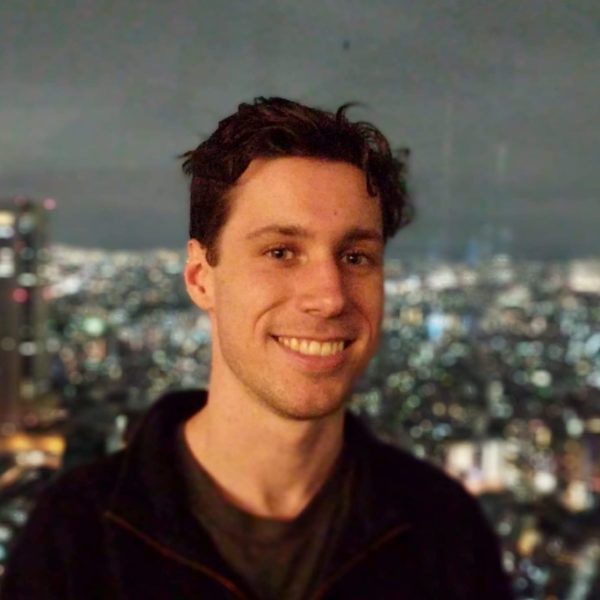25 October 2019
Meet the 2019 Deakin University Nonfiction Prize shortlist – Jim Thomas

Jim Thomas, 24, Vic
15,000 Roentgen
How did you begin writing?
Probably by reading too much. A favourite teacher of mine used to say that in order to be a good writer, you needed to read at least as much as you wrote (and ideally much more). On the same note, I think by reading a lot, it’s inevitable you begin to write, in the same way children mimic and then master speech.
Why do you write nonfiction?
Traditionally I saw nonfiction as a practical mode, encompassing news journalism, self help books and academic articles. Not that this kind of writing is less valuable than any other. But I privileged fiction over nonfiction as being able to engage more intuitively with questions of knowing and being.
Those nonfiction writers who use the devices, energy and flourish I value in fiction – Zadie, Maggie Nelson, Didion, Eileen Myles – first demonstrated to me the inherent creativity and range of the form, and inspired me to try it.
That, and because writing directly about myself, beyond the shade of fiction, feels vulnerable. I find this discomfort really productive.
Tell us a bit about your submission to the Deakin University Nonfiction Prize:
“If you can’t fix it, you’ve got to stand it”, says Ennis del Mar in Brokeback Mountain. My piece is interested in the specifics of that ‘standing’. Simply, how do people live with tough memories, and the material legacies of misfortune and tragedy?
The story unfolds across incidents in Hiroshima, Chernobyl, the Grand Canyon and Los Alamos. I draw on a few writers – Tim O’Brien, Zadie Smith, Ovid, Ben Lerner – and their insights into epistemology, particularly involving memory and self, as platforms for my thinking.
Why did you choose to write on this subject?
It’s more like, this subject chose me to write about it. That’s twee, but it really felt like that at times. Perhaps it’s because I’m a terrible planner. I sit down with a coffee and write until there’s something on the page. The next day, I respond to it, stretch it out and throw it in the air like pizza dough, until the piece is all there. It feels like the piece emerged in hermetic parts, in response to itself, without my particular agency.
On a more serious (and fairly simple) note, I think it’s vital we isolate and analyse our thoughts and feelings with rigour, to better understand ourselves and those around us. So in writing this piece, on this subject, I’m trying to practice that.
What’s the best piece of writing advice you’ve ever received?
Chip away! Write twenty words on your notes app when you see a nice sunrise. Record a good conversation you had with a friend. Almost without realising, the things you are interested in will arise naturally, into thousands of (useful) words. Oh man, here’s the proverb: “The best time to have planted a seed is one-hundred years ago. The second best time is now.” I’m sorry! I love it!
Who are some of your favourite nonfiction writers?
Tim O’Brien (The Things They Carried), Elif Batuman (The Idiot) and Ben Lerner (10:04)would probably say they write fiction, but the direct manner in which they reference their own experience is blatant nonfiction. I love the play between the two modes in their work, and the questions this raises about truth, reliability, etc.
Joan Didion (Slouching Toward Bethlehem), Eileen Myles (The Importance of Being Iceland) Zadie Smith (Changing my Mind) and Anne Applebaum (Red Famine) are my picks of the purists. In terms of locals, Caitlin McGregor (everywhere), Bede McKenna (please clap by bedem on tinyletter) and Abigail Fisher (her nonfiction mainly in Voiceworks) are all excellent.



